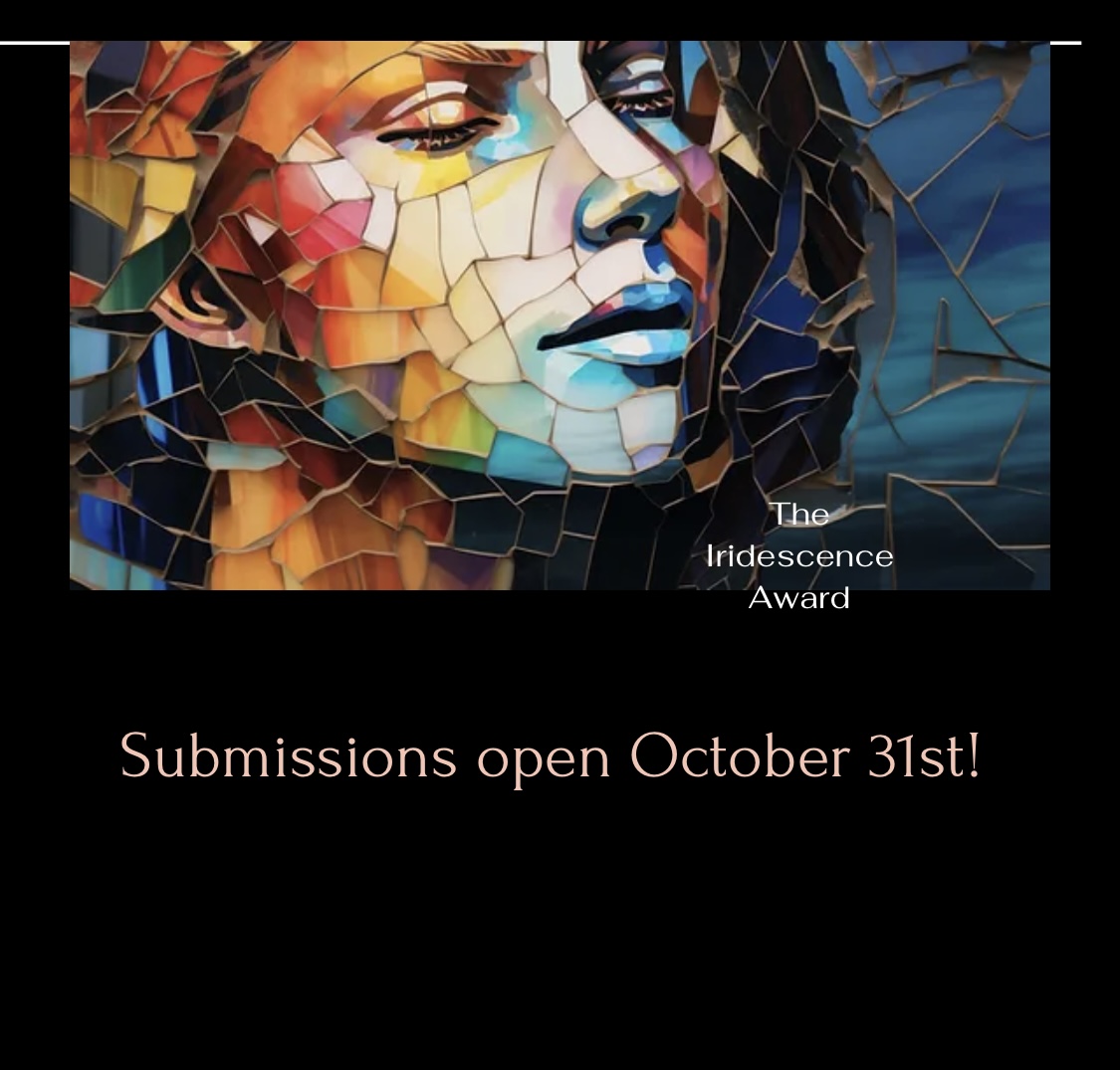The CBE International Writing #Contest 2019 (Prizes: $20 +Free Book + more)
The CBE’s annual writing competition is open for submissions. Writers are invited to send essays for consideration. CBE is a religious organization that publishes fiction and nonfiction on biblical gender equality, egalitarian theology, Christian feminism and other related topics.
The organizers provided a list of 7 broad topics to choose from. These topics have been listed below. All submissions must be sent before the 31st August 2019 deadline. 15 winners will receive the following prizes:
- opportunity to be published by CBE
- A $20 Amazon gift card
- A copy of Natasha Sistrunk Robinson’s new book with InterVarsity Press: A Sojourner’s Truth
- A free year-long subscription to CBE’s award-winning Mutuality magazine
Topics:
There are seven broad topics, and each topic has been expanded to include a series of bullet point prompts to help you understand what is required and to stimulate ideas. Participants are free to combine the prompts provided or deal with several prompts under the same broad topic in a single piece.
NOTE that submissions should focus on the main mission of the CBE, which is on, ‘promoting the equality of women and men as co-leaders in the church, home, and world’.
1. Toxic Theology or Spiritual Abuse Impact Stories
-
Did you grow up in a church that promoted traditional gender roles, authoritarian theology, and/or spiritual abuse? What’s your story? How did that experience shape or harm you and your faith? How have your faith and your beliefs changed?
-
Tell us about your own experiences with spiritual abuse in the church or your family. Was it difficult for you to recognize this as abuse? Did the church take your trauma seriously? What care exists for those who are traumatized by bad church practice, toxic theology, and authoritarian spiritual leadership?
2. Challenging Gender Roles in Dating or Marriage
-
Do you think dating/marriage as an egalitarian or Christian feminist is difficult? What makes it such a challenging process? What are the hurdles that come with a countercultural approach to dating/marriage?
-
How have you or did you overcome the pressure to conform to traditional gender roles (lead and pursue/submit and receive) in dating or marriage? How do you and your spouse challenge sexism and assumptions in your daily life?
-
What are some of the church’s harmful (gendered) messages about dating and marriage? Why are they problematic? What’s a better way?
-
If you’re married, how do you and your spouse split up housework? How do you make decisions when you disagree (provide a practical, workable model)? How do responsibilities shift season to season and how do you close ranks as a team to handle whatever that season brings?
-
How do you deal with conflict in dating or in your marriage, especially related to responsibilities and gender?
-
How do you address the assumptions of others: someone assumes the husband/father is in charge; that mom is the primary caregiver; that dad is the more natural disciplinarian, etc.?
-
Husbands, how do you stand up for your wives when people express sexist assumptions about housework/parenting/work versus stay at home? Why is it important to do so?
3. Why Equality Is Good for Men Too
-
Are you a man who doesn’t fit the church’s prescription for masculinity? Tell us your story. Tell us how embracing women’s equality and rejecting traditional gender roles brought you freedom and health.
-
Talk to us about why some men think egalitarianism is just about women gaining power over men. What’s wrong with that definition? How does egalitarian theology offer a counter-cultural approach to power?
-
What are the challenges to being a good ally to women? How do you advocate for women around you and subvert patriarchy?
-
Why is women’s equality good for men and for churches and communities?
-
Tell us about the men you consider positive examples of masculinity and why? Who do you look to for guidance on how to be a good man?
4. Body Positivity after Purity Culture
-
How can we begin a conversation around body positivity in the church? How can we honor the bodies God so carefully crafted?
-
As egalitarians/Christian feminists, how should we think about our bodies and does it differ from how the church has traditionally understood the human body? Is there a difference between valuing and affirming the body and elevating it too much?
-
What is the danger in the church’s typical rhetoric related to the body, as influenced by purity culture? How do those messages foster unhealthy thought patterns, self-image, and behaviors in young girls and women? What’s a better and yet still biblical message?
-
Let’s talk about women’s bodies. Whose are they? What are they for? Why does it matter? How do we as a society and as a church discourage women’s bodily agency and autonomy? What does it look like to honor women’s bodily autonomy in the church?
5. Healing After A) Complementarianism B) Abuse
-
Tell us your story. How do you process past traumas related to these topics? If you’ve experienced trauma due to abuse or due to complementarian teachings, and then found freedom or healing, tell us about your journey.
-
Analyze a belief related to gender roles/women’s equality/abuse in your church/community that you’ve come to see as dangerous or problematic and what you now believe instead. How did you change your mind? Why did you change your mind?
6. Sexual Harassment in a Christian Context
-
Have you experienced sexual harassment or inappropriate behavior/touch/comments in the church as a woman? How was it addressed? Was is addressed at all? Did you feel believed and respected?
-
How can we as Christians teach and model consent in our communities and relationships, even extending that ethic to jokes and casual touch? Why is this a tricky issue for some Christians?
-
What does religious teaching and theology have to do with consent? Why have youth groups and churches rarely talked about consent when teaching on sexuality? Why is consent a biblical principle?
-
What is sexual harassment? How can we recognize it in the church? How can we avoid dismissing it as “boys will be boys?
7. Bias against Women in Ministry or Seminary
-
When did you know you wanted to be in ministry? Did you have a role model who inspired you to pursue your ministry calling?
-
What opposition have you faced as a woman or as a woman of color in ministry and how have you overcome it? Have you experienced sexism and bias in Christian contexts? How have people surprised you in relation to your calling? How have they not?
-
Talk to us about double standards for women and women of color in ministry versus men in ministry.
-
Do you ever feel lonely? What do you wish was different for women and women of color in ministry?
-
What have you learned as a woman and/or woman of color in ministry? What would you tell young girls who may follow you down the ministry/pastoral path?
Submission Guidelines
- Participants should adhere to CBE’s core values, which is to promote biblical justice and community by educating Christians that the Bible calls women and men to share authority equally in service and leadership in the home, church, and world.
- Essays must be between 700-1800 words.
- Manuscript formatting guidelines::
- Submissions should be a typed single-spaced Microsoft Word document. (
- Paragraphs do not need to be indented).
- Participants may submit more than one entry, but only one submission per person will be in the Top 20.
- Late submissions will not be accepted for the contest, but will still be considered for publication.
- Only original and unpublished works will be considered. However, those who have personal blogs with a small audience should apply and indicate.
- All submissions should have correct spelling and grammar. For any outside sources, proper citation and link should be included. However, in a popular article, citations (if included) should be minimal.
- CBE’s communications team will edit all submissions prior to publication and titles may be changed.
How to Apply:
All non-academic submissions on one of the seven topics above must be a typed, single-spaced Microsoft Word document attachment, and sent in an email to rasproth@cbeinternational.org by August 31, 2019.
- Please Note to include the following in the email to which you attach your entry/ies:
- Your full name, an (50 words or less) author biography, and a high quality JPEG profile image
- Provide the total word count of your submission (not including your title)
- Indicate which of the seven topics you’ve chosen
- Save and submit the document using your last name as the document name
Prizes and Awards:
The top 15 winners stand a chance to:
- Have their submissions published with CBE
- Win a $20 Amazon gift card
- Win a copy of Natasha Sistrunk Robinson’s awesome new book: A Sojourner’s Truth
- Get a free year-long subscription to CBE’s award-winning publication, Mutuality magazine
The five runners-up will also:
- Have their submissions published with CBE
- Get a free year-long subscription to CBE’s award-winning publication, Mutuality magazine
Got any inquiries? Forward them via email to rasproth@cbeinternational.org.
Good luck.





